Introduction: Reconnecting with Nature’s Wild Heart
Few experiences rival the freedom of sleeping under the open sky, surrounded by towering peaks and starlit silence. Camping Spots in Northern Pakistan has become the ultimate 2026 adventure for travelers seeking raw beauty and pure connection with nature. From glacial lakes hidden beyond pine forests to meadows kissed by the Karakoram winds, this is where solitude and wonder merge into a single unforgettable journey.
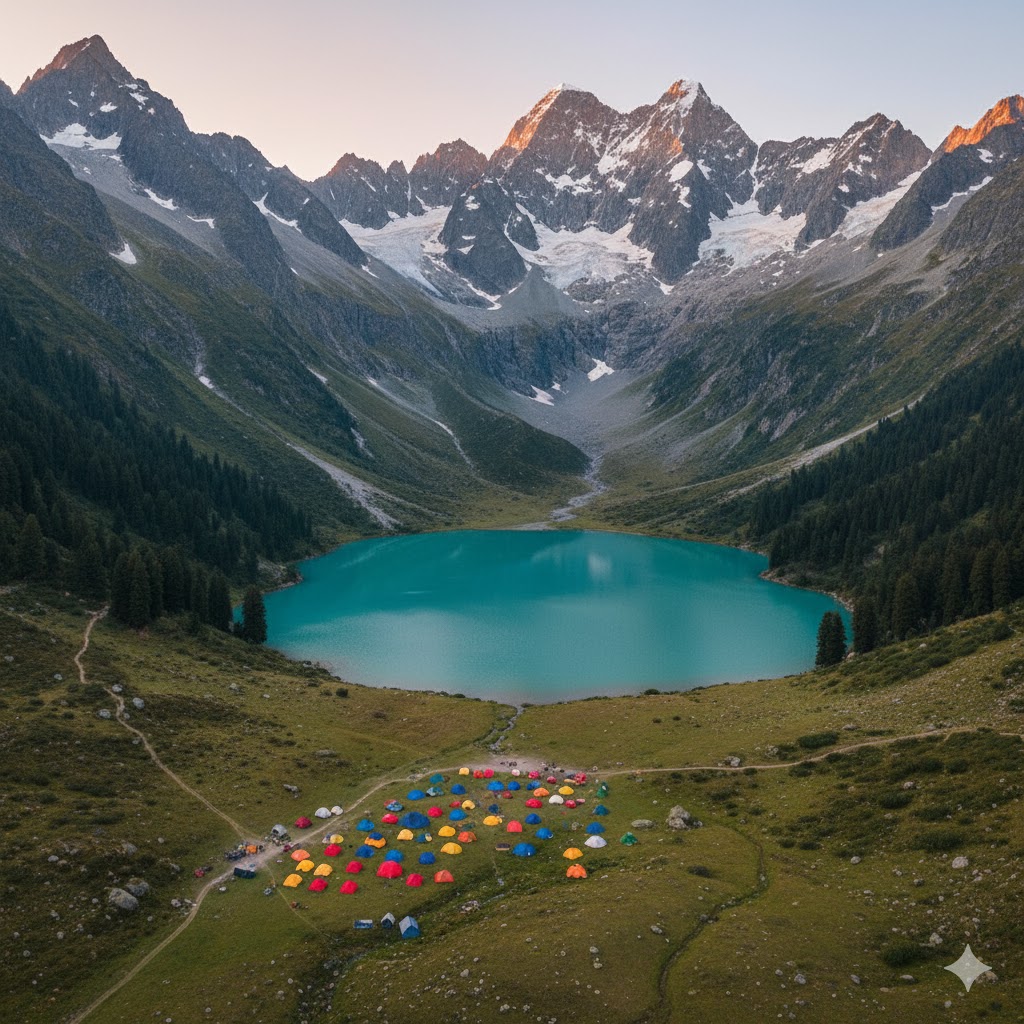
🏔️ 1. Fairy Meadows, Gilgit-Baltistan — Gateway to Nanga Parbat
Fairy Meadows is the crown jewel of Pakistan’s camping destinations — a lush alpine meadow overlooking the world’s ninth-highest peak, Nanga Parbat (8,126 m). In 2026, new eco-camps have enhanced comfort without disturbing the fragile ecosystem. Whether you pitch your tent near Raikot Glacier or book a wooden hut at Raikot Sarai, you’ll wake to a sunrise painting snow-clad summits gold.
Hidden Secret: Locals whisper of the “Echo Rock,” a cliff where every shout returns with double resonance — a natural sound chamber of the Himalayas.
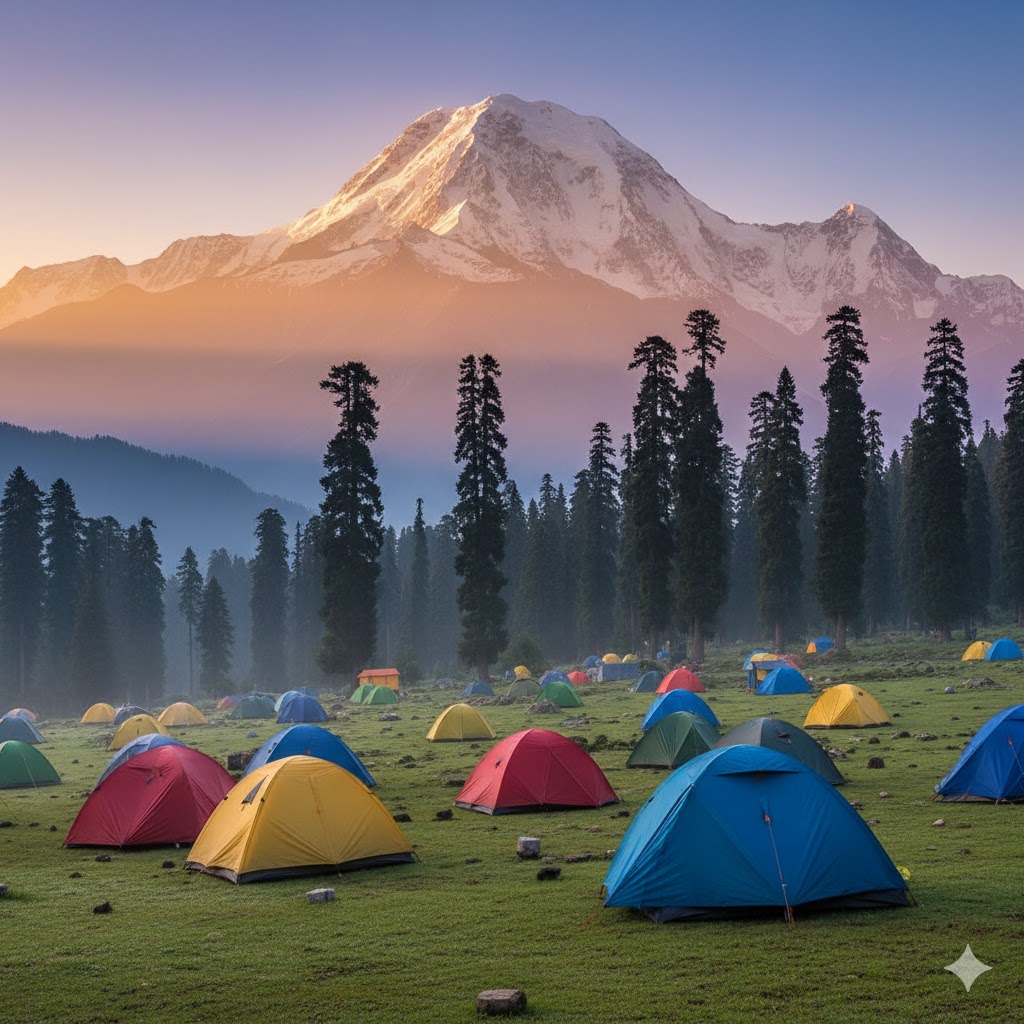
🏞️ 2. Rama Lake, Astore Valley — Mirror of the Sky
Tucked at 10,500 ft in Astore Valley, Rama Lake reflects surrounding snow peaks like a perfect mirror. A short 2-hour hike from Rama Meadows leads campers through whispering pines and blooming lupines. Evenings bring golden reflections on the water and soft yak bells echoing from distant slopes.
Tip: Carry a lightweight waterproof tent — mountain weather can shift from sunny to misty within minutes.
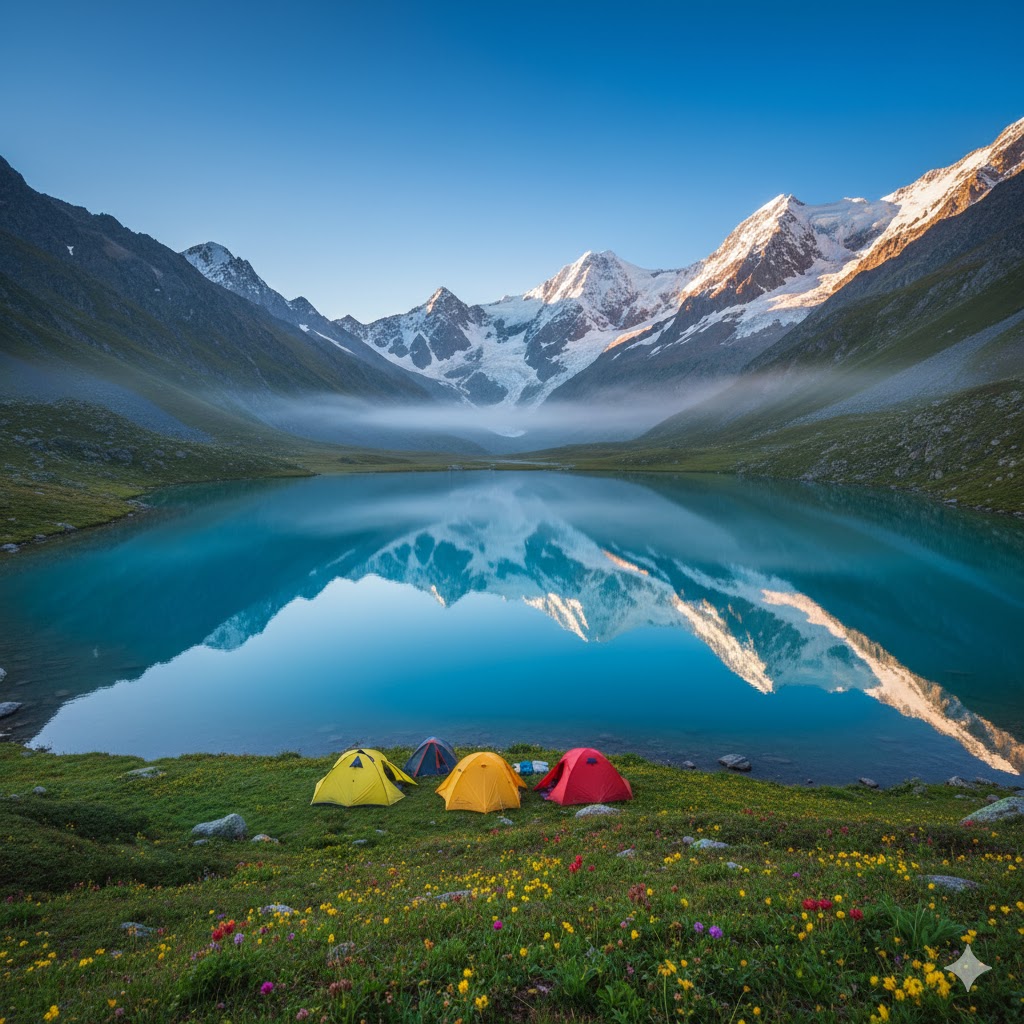
🌊 3. Sheosar Lake, Deosai Plains — The Land of Giants
At 13,589 ft, Sheosar Lake lies within the legendary Deosai National Park, known as the “Land of Giants.” Its vast plains bloom with wildflowers and host Himalayan brown bears, golden marmots, and snow partridges. Camping here is an otherworldly experience — wind sweeping across open tundra beneath galaxies of stars.
Local Insight: Rangers allow limited campfires; bring a reusable stove and pack out all waste.
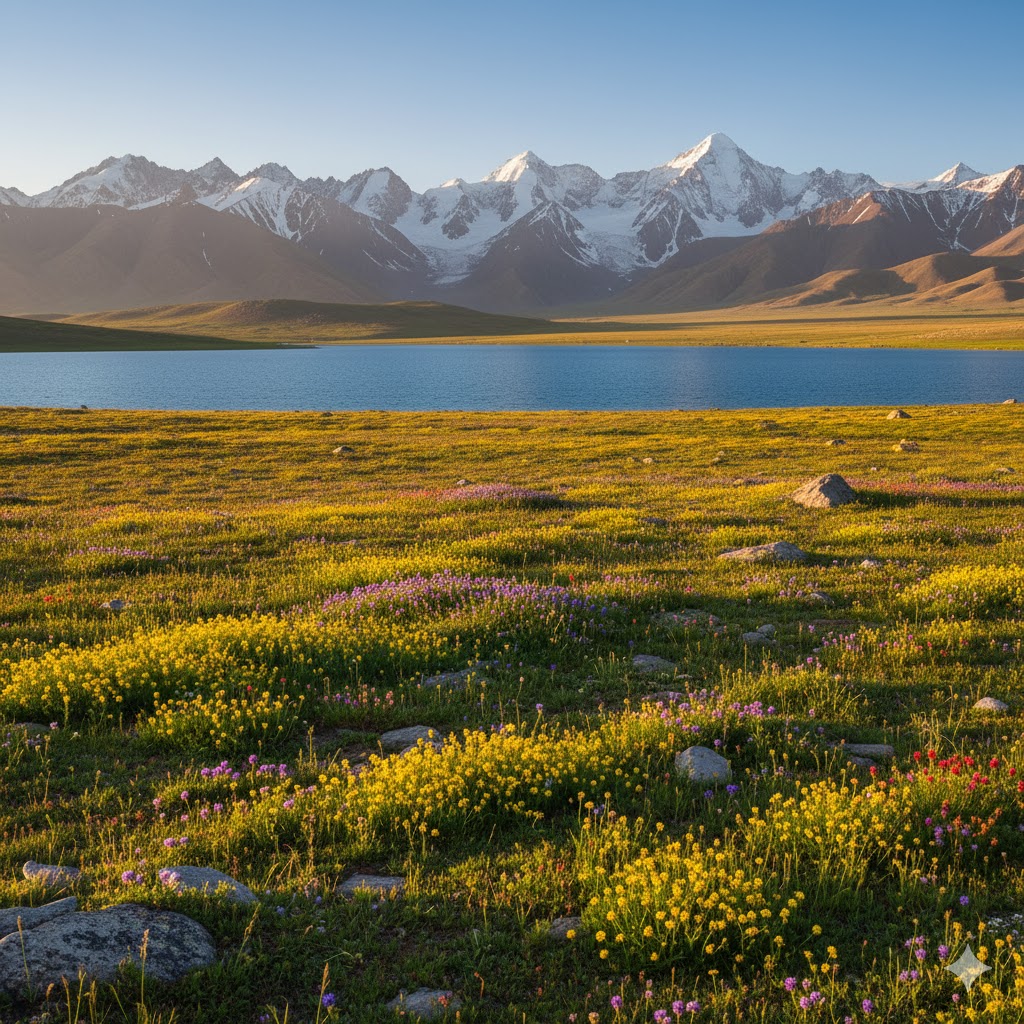
🪶 4. Ratti Gali Lake, Neelum Valley — Kashmir’s Hidden Sapphire
Arguably the most photogenic alpine lake in Azad Kashmir, Ratti Gali glows like a sapphire under the summer sun. In 2026, controlled eco-camping zones have been introduced to protect its crystal waters. A 2-hour jeep track from Dowarian followed by a 3-hour trek brings you to its glacial rim.
Hidden Gem: At dawn, the lake’s color shifts from icy blue to emerald green — a spectacle known locally as the morning mirror.
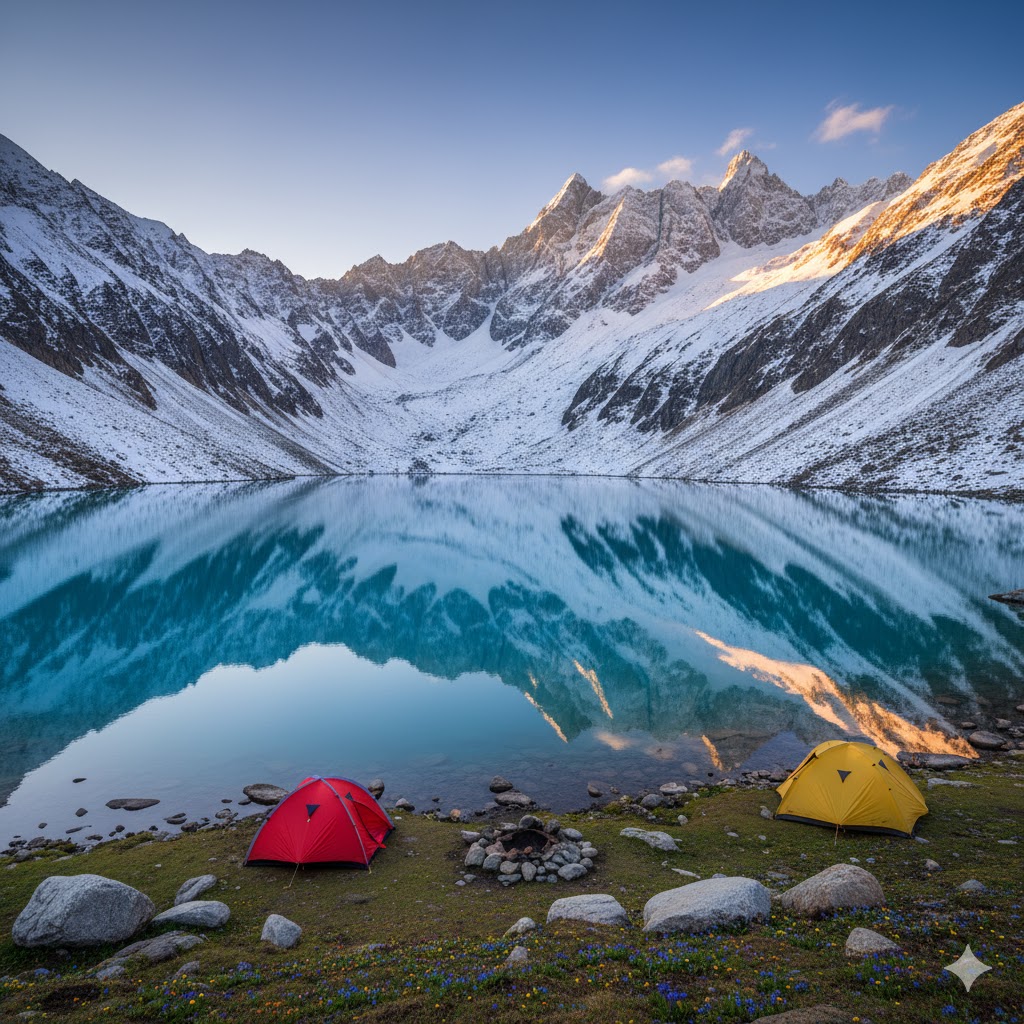
🏕️ 5. Minimarg Meadows — The Forgotten Eden
Once restricted, Minimarg Valley is now open under guided permits. Carpeted with pine trees and wild orchids, it offers a serene alternative to crowded tourist hubs. The trail leading to Rainbow Lake rewards trekkers with jade water reflecting the sky. Camping by the lakeshore is both peaceful and cinematic.
Traveler’s Tip: Bring biodegradable mosquito repellent and a trekking stick — trails are soft but occasionally muddy.
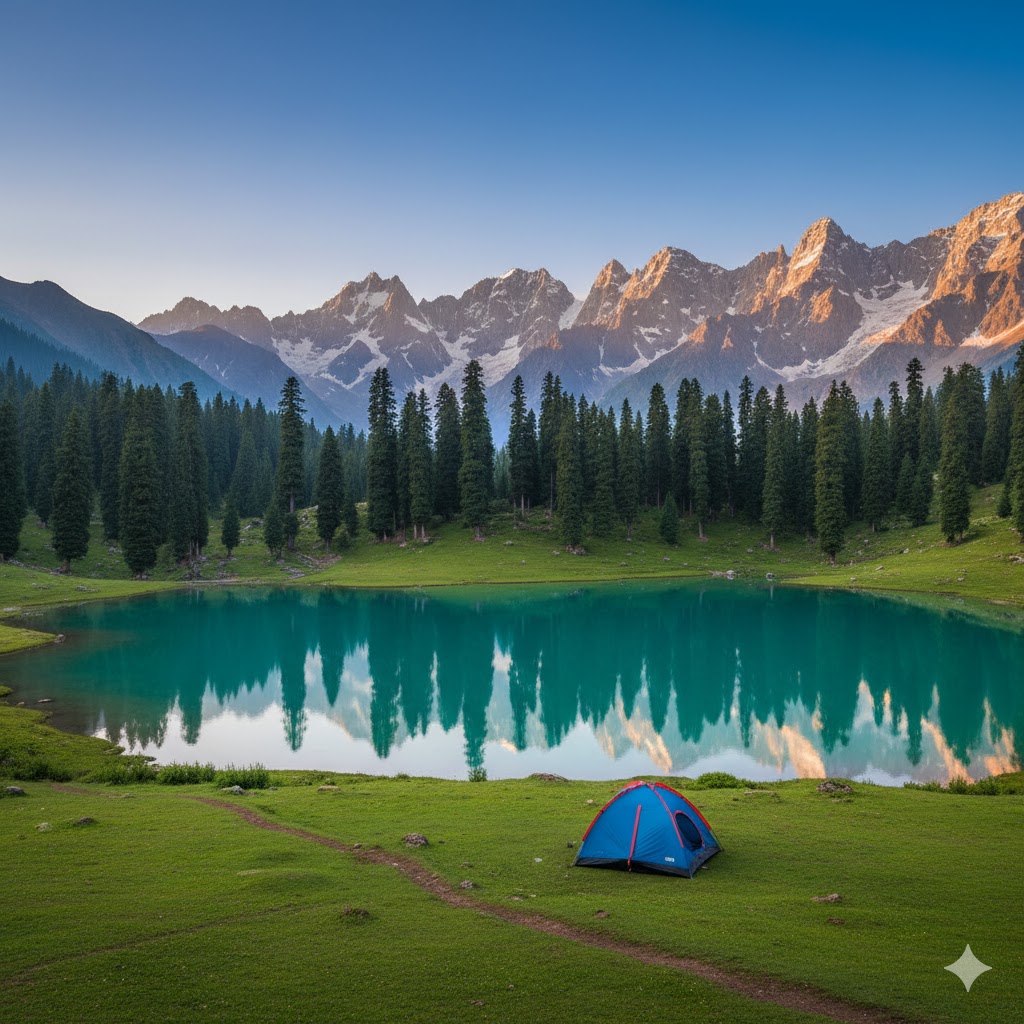
🌅 6. Upper Kachura Lake, Skardu — The Jewel of Baltistan
Surrounded by apricot orchards and rugged granite cliffs, Upper Kachura Lake offers accessible lakeside camping with boating options. Local families rent wooden huts or allow tents near their orchards. The crystal water invites dawn swims and evening reflections of orange-tinted peaks.
Hidden Secret: Beneath the lake lies an ancient submerged village said to have vanished after a landslide centuries ago — visible only on calm days.
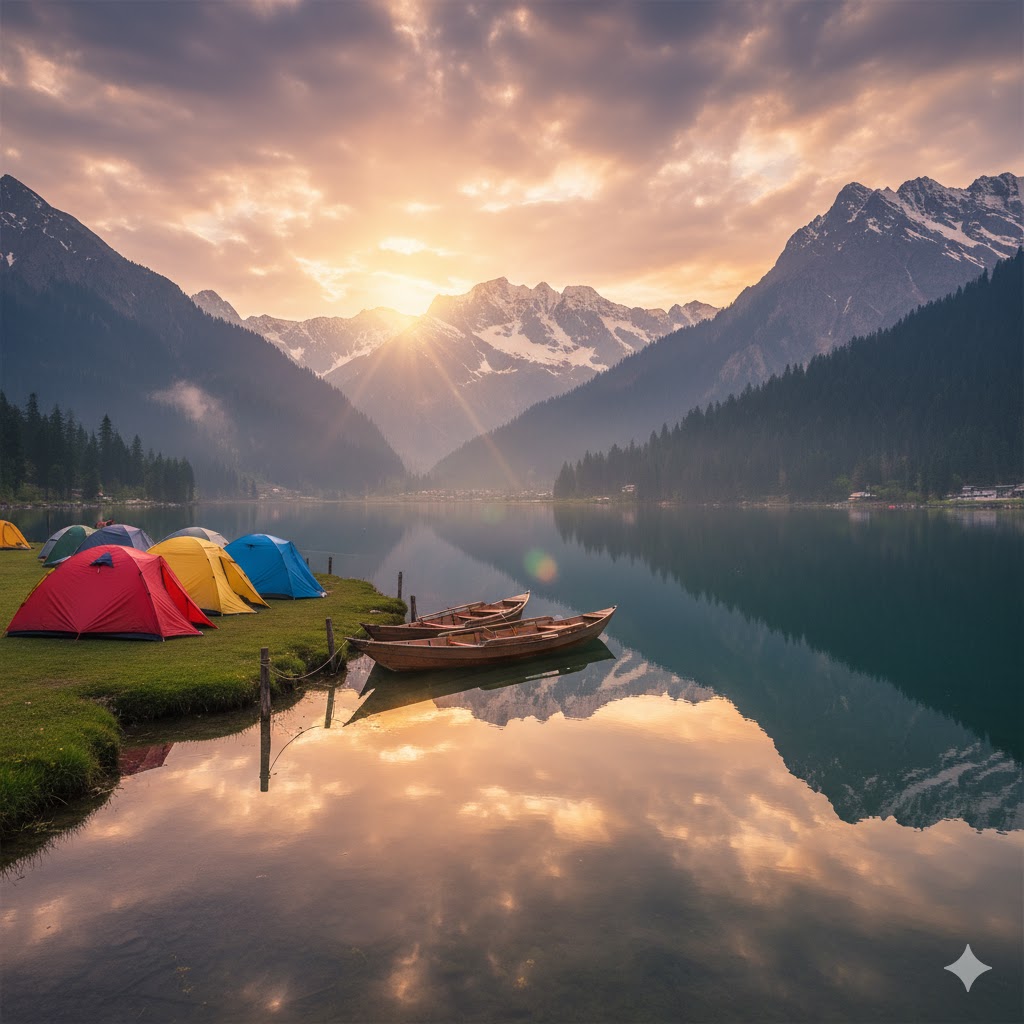
❄️ 7. Shandur Pass — Roof of the World
Famous for hosting the annual Shandur Polo Festival, this 12,200-ft plateau between Gilgit and Chitral transforms into a meadow of colors during summer. Campers enjoy 360-degree views of snow ridges and turquoise ponds. Nights are cold but filled with music from local polo celebrations.
Pro Tip: Bring warm layers, gloves, and windproof jackets — temperatures drop below 5 °C even in July.
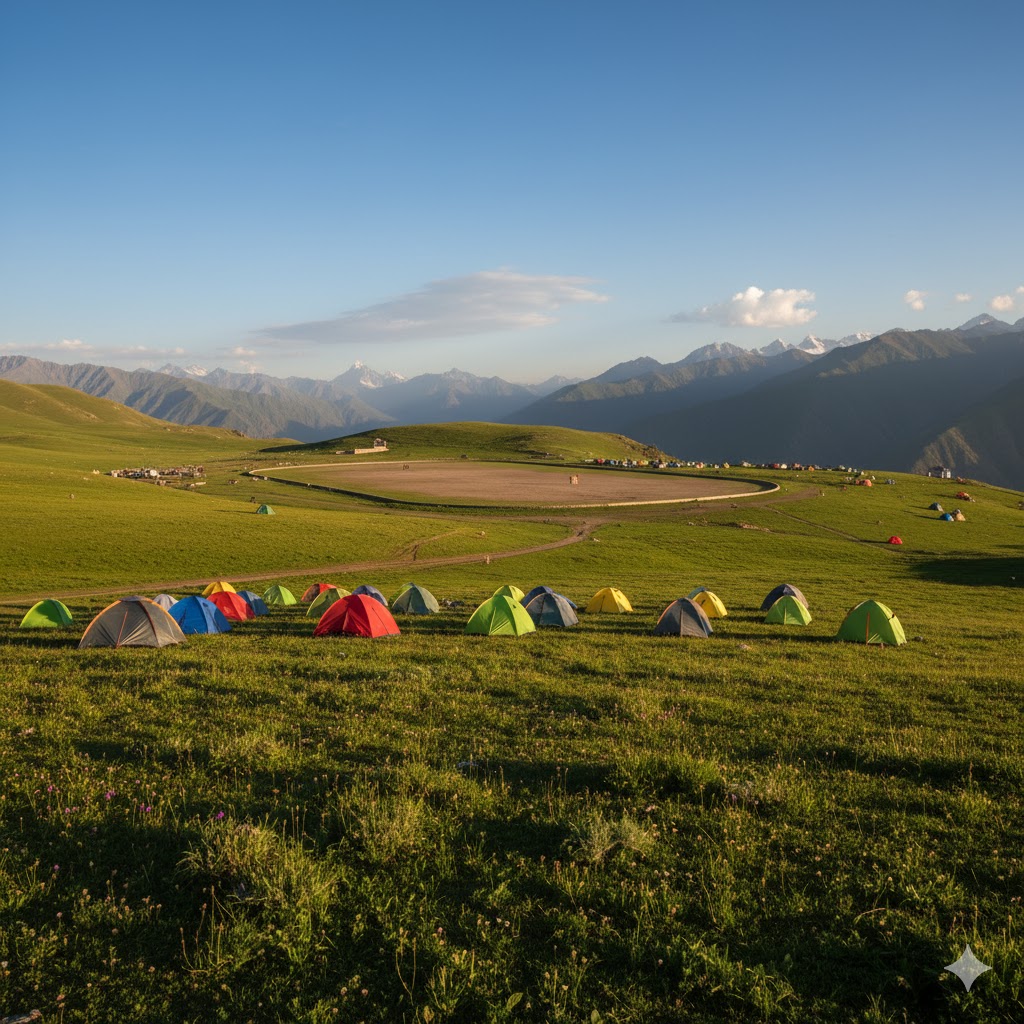
🌺 8. Phander Lake, Ghizer — The Blue Valley Haven
Often called “Little Switzerland,” Phander Lake is ideal for family camping. Wooden bridges span its sapphire surface while trout ripple the calm waters. Community-run campsites serve traditional food and rent fishing gear.
Local Flavor: Try chapshuro (Balti meat pie) with hot green tea while sitting beside the glowing lake.
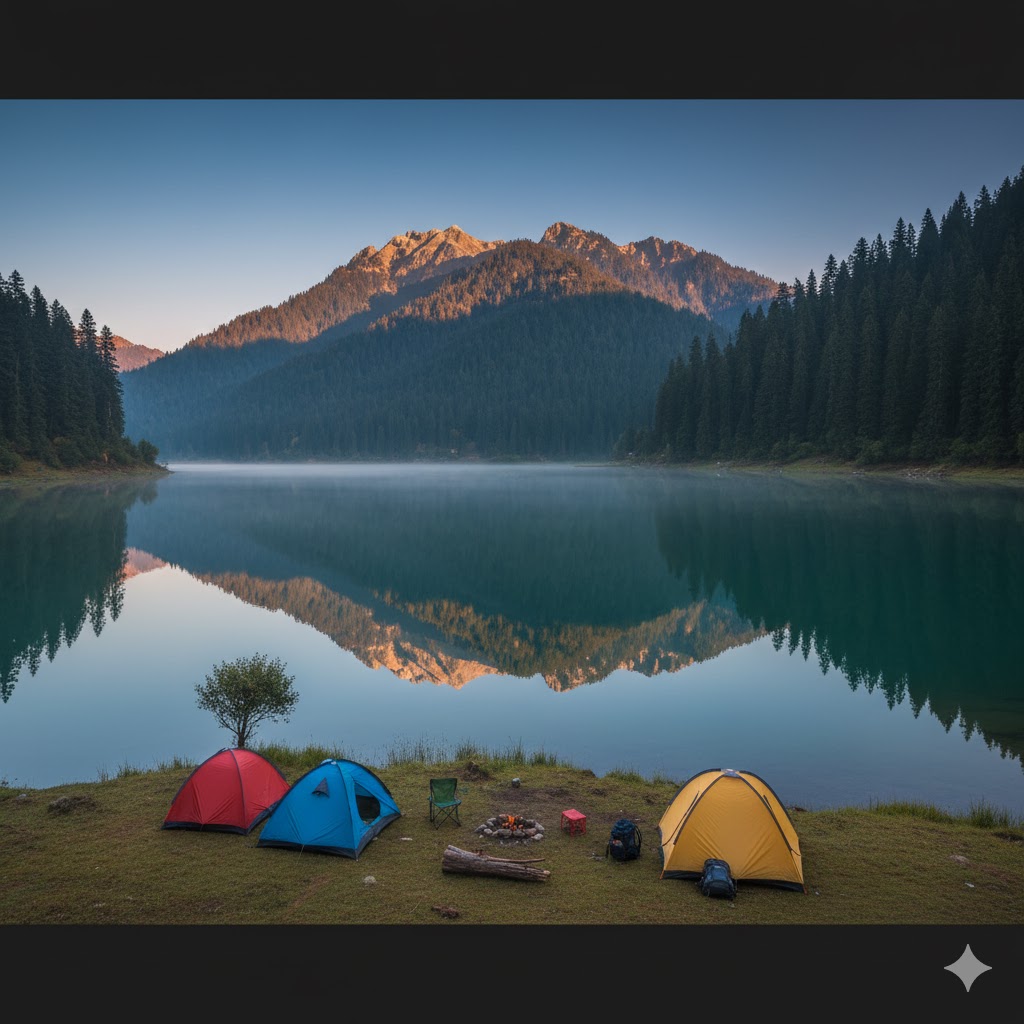
🏕️ 9. Beyal Camp, Nanga Parbat Base — For the Bravehearted
Beyond Fairy Meadows lies Beyal Camp, where trekkers pitch tents beneath towering glaciers. The sound of cracking ice and distant avalanches echoes across the valley. For adventure lovers, it’s raw, powerful, and unforgettable.
Safety Note: Always hire a guide and carry trekking poles; paths are rocky but rewarding.
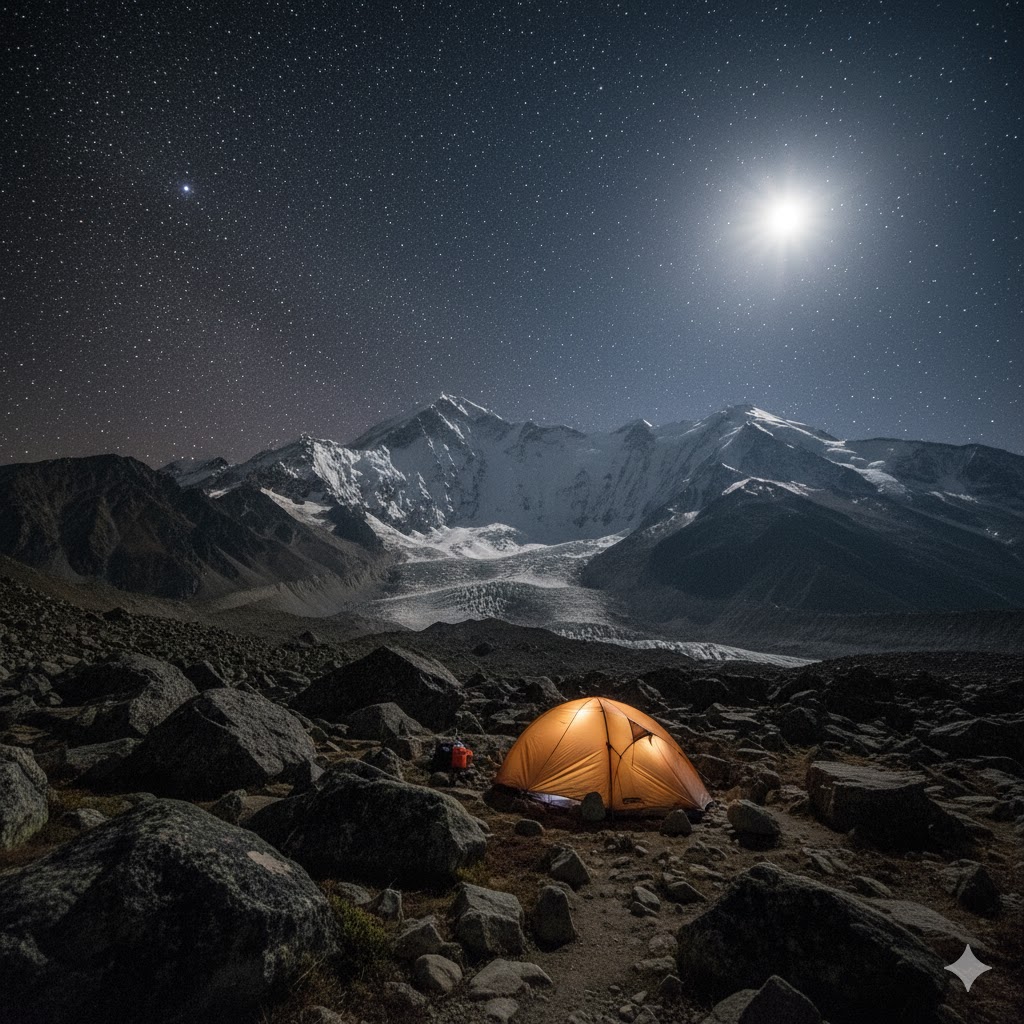
🌤️ Best Time for Camping in Northern Pakistan
The prime season runs from May to September, offering mild temperatures and clear skies.
- May–June: Blossoms and lush green meadows.
- July–August: Warm days, lively festivals, occasional rain.
- September: Crisp golden air and fewer tourists — perfect for solitude.
- October onward: Higher passes begin closing due to snow.
Always check local forecasts and pack according to elevation.
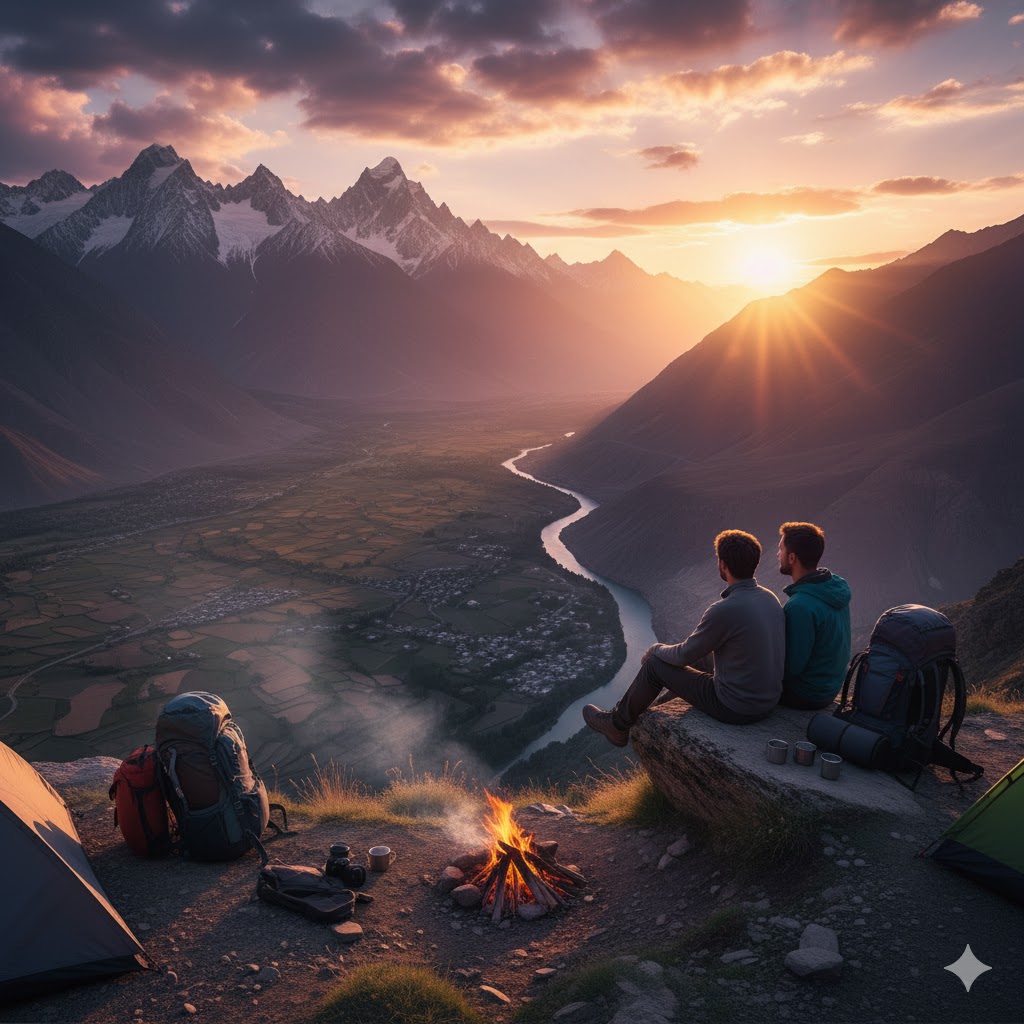
🎒 Backpack & Gear Checklist
- 40-50 L waterproof backpack
- Sleeping bag (rated −5 °C)
- Tent with groundsheet
- Trekking stick
- Portable stove & utensils
- Reusable water bottle & filter
- Headlamp & spare batteries
- Rain jacket, fleece, gloves
- First-aid kit & sunscreen
- Power bank & offline map
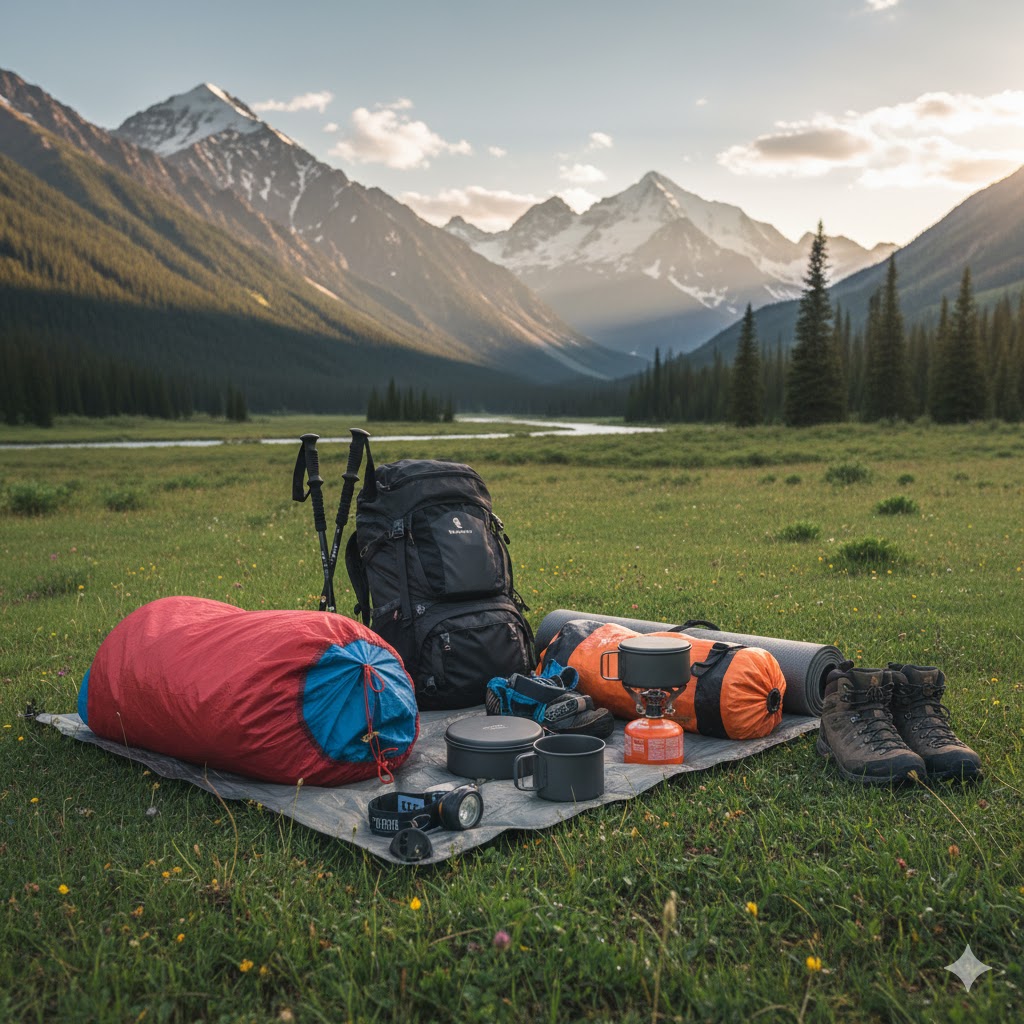
🔥 Responsible Camping Ethics
Northern Pakistan’s fragile ecosystems thrive only through conscious travel.
- Leave no waste; use designated bins.
- Avoid loud music; respect local peace.
- Support local guides and buy regional crafts.
- Never cut trees for firewood — use portable burners.
Every small act protects these mountains for future explorers.
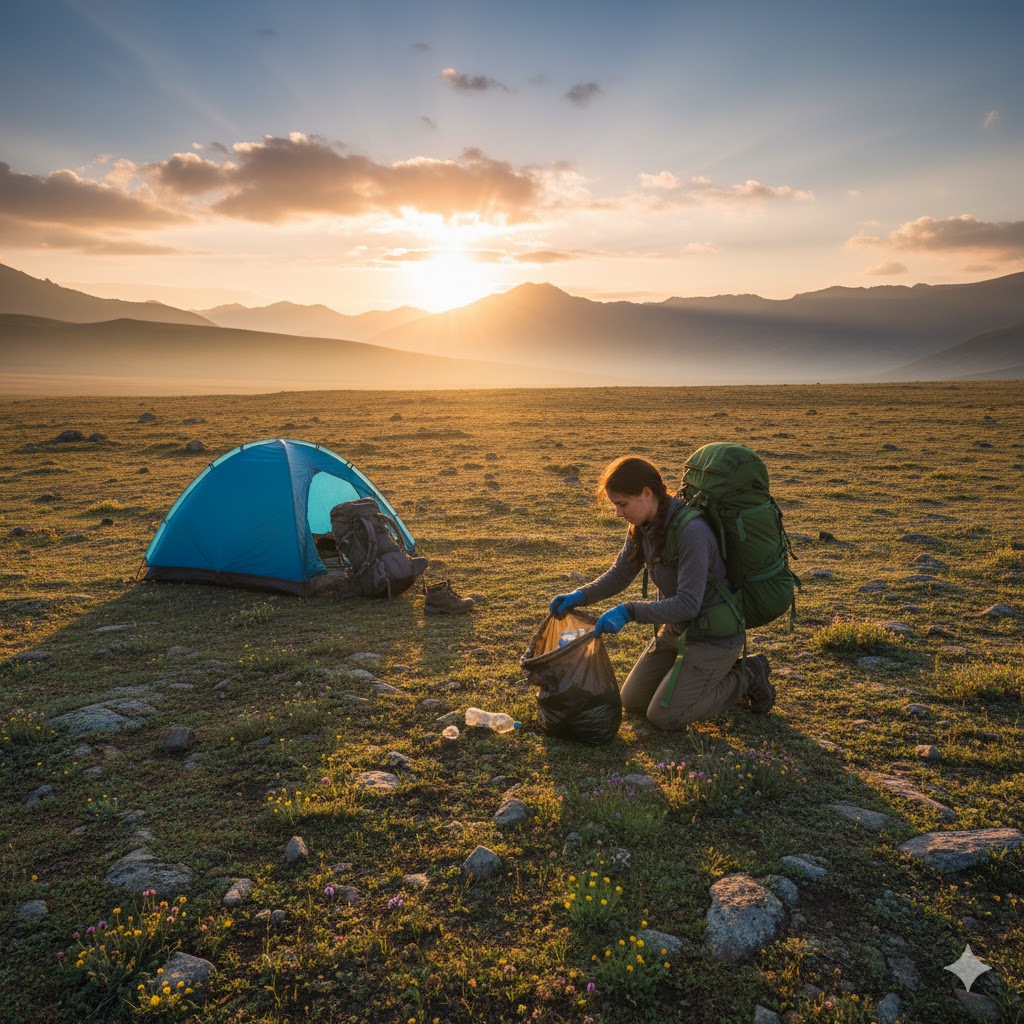
References:
- Must Read: See also → Arrang Kel Kashmir Trek 2026
- Source: Pakistan Tourism Development Corporation (PTDC) official camping and permit guidelines.
🏁 Conclusion: Where the Earth Still Breathes Pure
Northern Pakistan’s camping spots offer more than scenic views — they gift a silence that heals, a chill that awakens, and a landscape that humbles. In 2026, whether you camp by Fairy Meadows, wake beside Ratti Gali Lake, or sleep under the Deosai stars, you become part of a timeless story — one written by mountains, wind, and wonder itself.
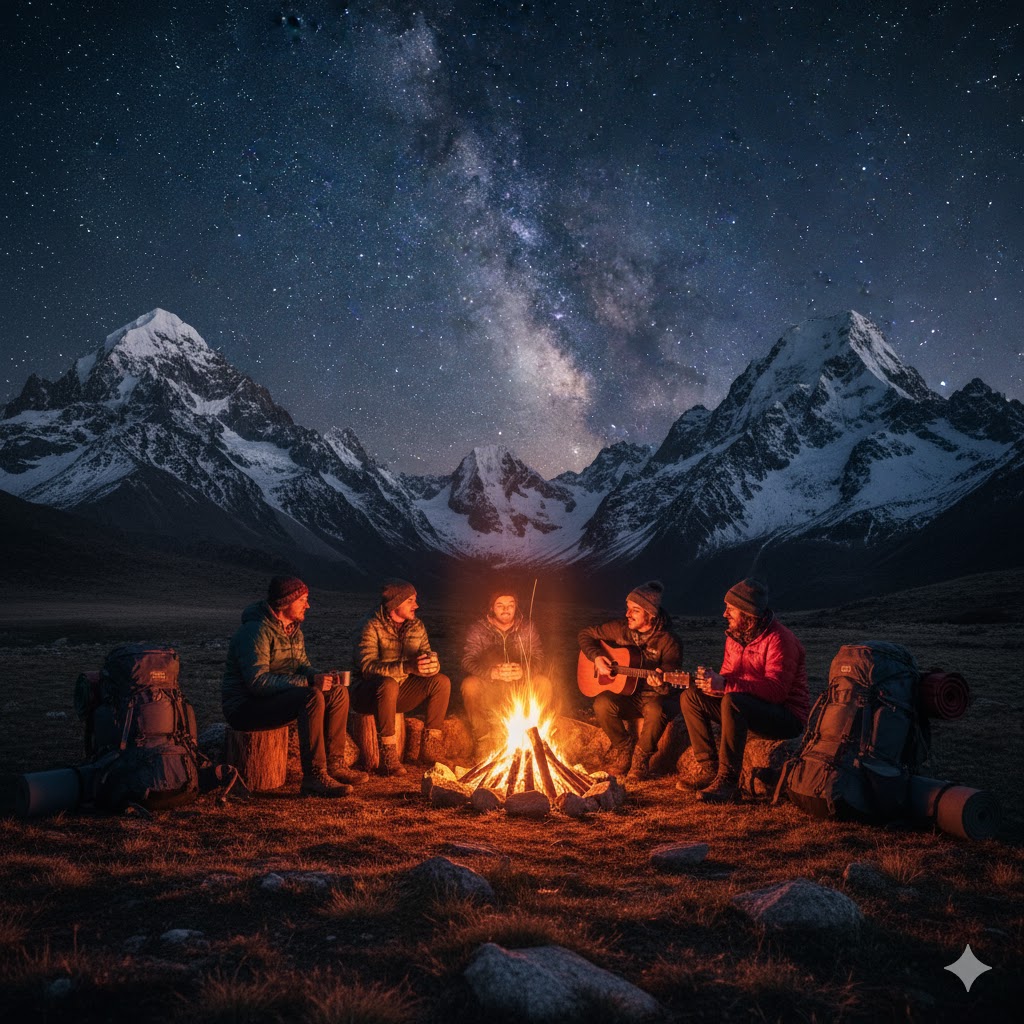

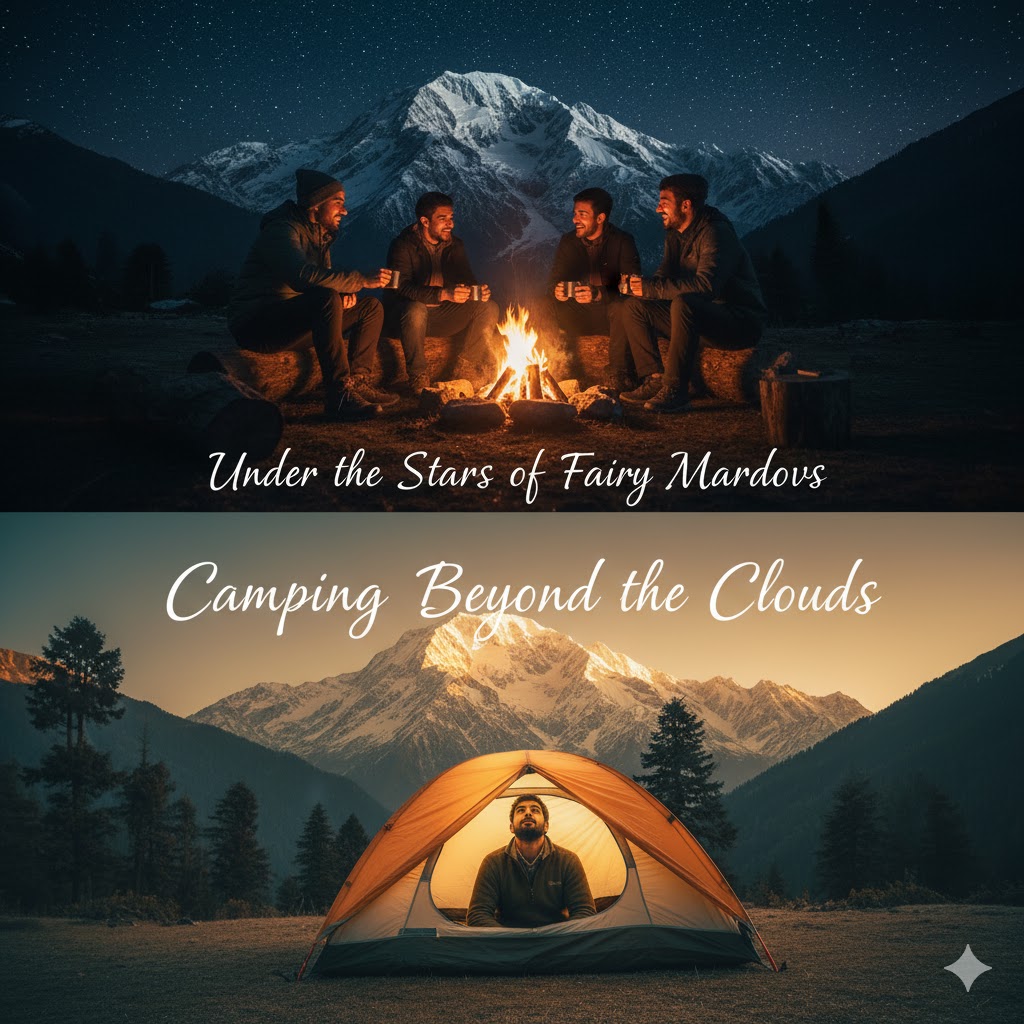

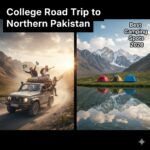
Pingback: Best College University Road Trip Northern 2026: Meadows Mountains
Pingback: Best Life in the Mountains Pakistan 2026: Adventure Trails
Pingback: Hidden Lakes of Northern Pakistan 2026: Secret Mountain Gems
Pingback: Skardu Valley 2026: Best Gateway to Karakoram Adventures
Pingback: Skardu Hidden Gems Gilgit-Baltistan 2026 Explore Secrets
Pingback: Majestic Historic Forts in Pakistan 2026 Epic Guardians of Time
Pingback: Hunza Heritage Guide 2026: Explore Timeless Culture